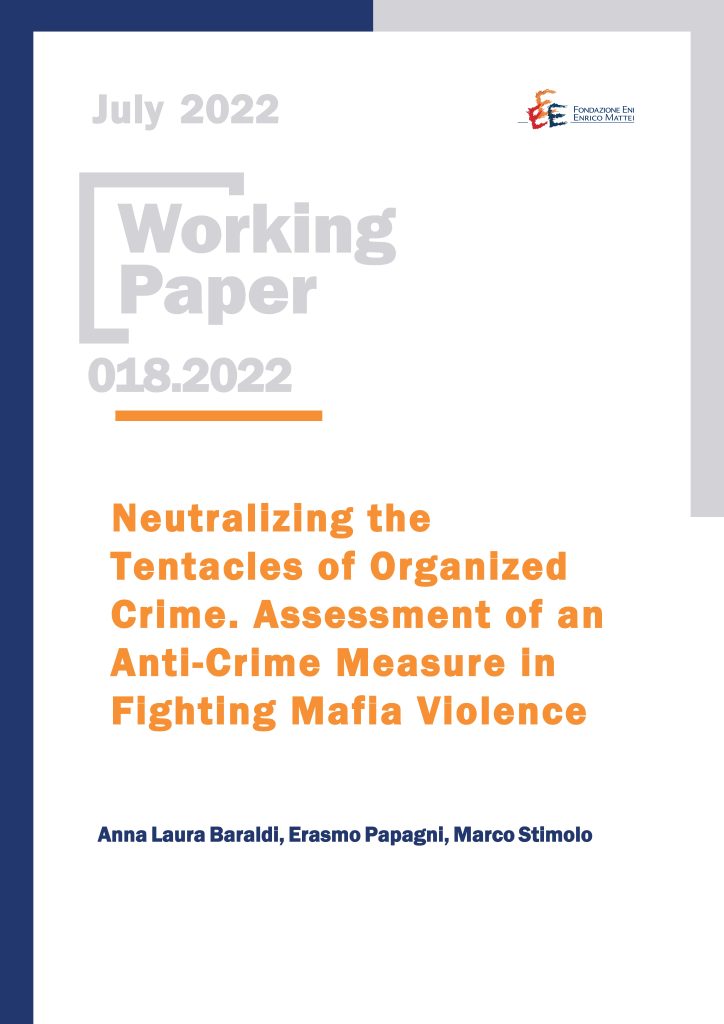Neutralizing the Tentacles of Organized Crime. Assessment of an Anti-Crime Measure in Fighting Mafia Violence

29.07.2022
Anna Laura Baraldi (Department of Economics, University of Campania); Erasmo Papagni (Department of Law, University of Naples Federico II); Marco Stimolo (Department of Economics, University of Campania)
C25, D73, D78, I38, K42
Organized Crime, Violence, Anti-corruption measures, Spillovers
Organized crime reinforces its corrupting influence on politics through violent intimidation. Anti-crime measures that increase the cost of corruption but not of the exercise of violence might accordingly lead mafia-style organizations to retaliate by resorting to violence in lieu of bribery. On the other hand, anti-corruption measures might also induce criminal clans to go inactive, owing to the higher “entry barriers” to the “business” of influencing politics, which would reduce violence. To determine which of these possible effects is prevalent, we undertake an empirical assessment of the impact of city council dissolution for mafia influence as prescribed by Decree Law 164/1991 in discouraging violence against politicians in the period 2010-2019. Our difference-in-differences analysis shows that in the dissolved municipalities the enforcement of the Law reduces violence, the effect persisting for two electoral rounds. Also, we find spillover effects moderating violence in undissolved neighboring municipalities. These findings are robust to a series of endogeneity tests.
***
Suggested citation: A. L. Baraldi, E. Papagni, M. Stimolo, ‘Neutralizing the Tentacles of Organized Crime. Assessment of an Anti-Crime Measure in Fighting Mafia Violence’, Nota di Lavoro 018.2022, Milano, Italy: Fondazione Eni Enrico Mattei
